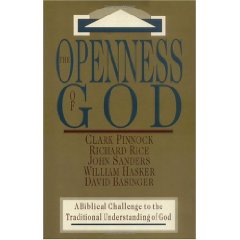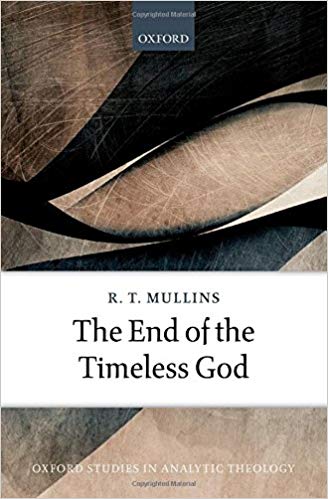An Experiencing God Knows All that’s Knowable
Open and relational theologies say God enjoys moment-by-moment experiences in relationship with others. This important idea affects how these theologies think about God’s knowledge.
Open and relational theologies take seriously the reality of time’s forward flow. Not only is existence fundamentally in process, but God also experiences the process of time. God is timefull not timeless. The living and loving Creator everlastingly relates with others moment by moment.

An Open Future
God-in-process views say God faces an open and undetermined future. That’s the meaning of ‘open’ in open and relational theologies.
An undetermined future implies God cannot now know with certainty all that will occur. God doesn’t possess exhaustive foreknowledge.
God could only know now all of that will occur if the future were settled, fixed, and complete. A determined future — if that idea is even coherent — would be knowable by a timeless God.
A determined future is inconsistent, however, with the reality of creaturely freedom. True freedom requires choosing among options and possibilities. A determined future has no options or possibilities. There is no “might be” for a timeless God.
The idea the future is determined and the idea God is timeless don’t fit well with the idea God experiences relational love. The timeless God cannot engage in ongoing love experiences. But a timefull God can!
An Open and Relational God is Omniscient
Lack of foreknowledge doesn’t mean God’s knowledge is limited. The future does not yet exist to be known, so it does not provide information anyone could know. The future is inherently unknowable as actual because it is not yet actual.
Open and relational theologians believe God is omniscient, however. God knows all that’s knowable. God knows the completed past, the unfolding present, and possibilities for the future. And God also knows what God plans to do in the future, although those plans might change if love demands it.

Critics of open and relational theology sometimes say it can’t affirm divine omniscience. But that assumes an unhelpful view of God’s relation to time. Critics (wrongly) assume the actual future is knowable. But the future is not actual. It is at best a realm of possibilities, if it is anything at all!
Relating to God
This view of God’s omniscience and relation to time makes better sense of how most Christians relate to God. Christian piety and Scripture assume God gives and receives in ongoing relationship with creation. Most Christians assume God gives options from which they must freely choose.
Petitionary prayer makes better sense, for instance, if the future is open and not yet decided. It makes little sense to ask God to do something if the future is already settled. This kind of prayer makes little sense if God is timelessly unresponsive. But if the future is not yet determined, our prayers may have influence how God and creation acts.
In fact, a whole host of Christian ideas — such as God creating, redeeming, becoming incarnate, sanctifying, loving, and more — make little sense if God does not experience time moment by moment. One of the better books on this subject is by Ryan Mullins, The End of a Timeless God.

Explore
A number of books explain the open and relational view of divine omniscience. They range from sophisticated philosophical treatises to everyday language explanations. John Sanders has a nice essay on many throughout history who have affirmed the view, which he calls “dynamic omniscience.” Don Viney’s explanation of process theism also explains why this view makes sense. And here’s easy to understand blog I wrote to help leaders in my church denomination think through the issues.
Diverse paths of exploration have led to open theology. I encourage you to dig deeper into this important way of thinking about God’s knowledge in particular and reality in general!

Comments